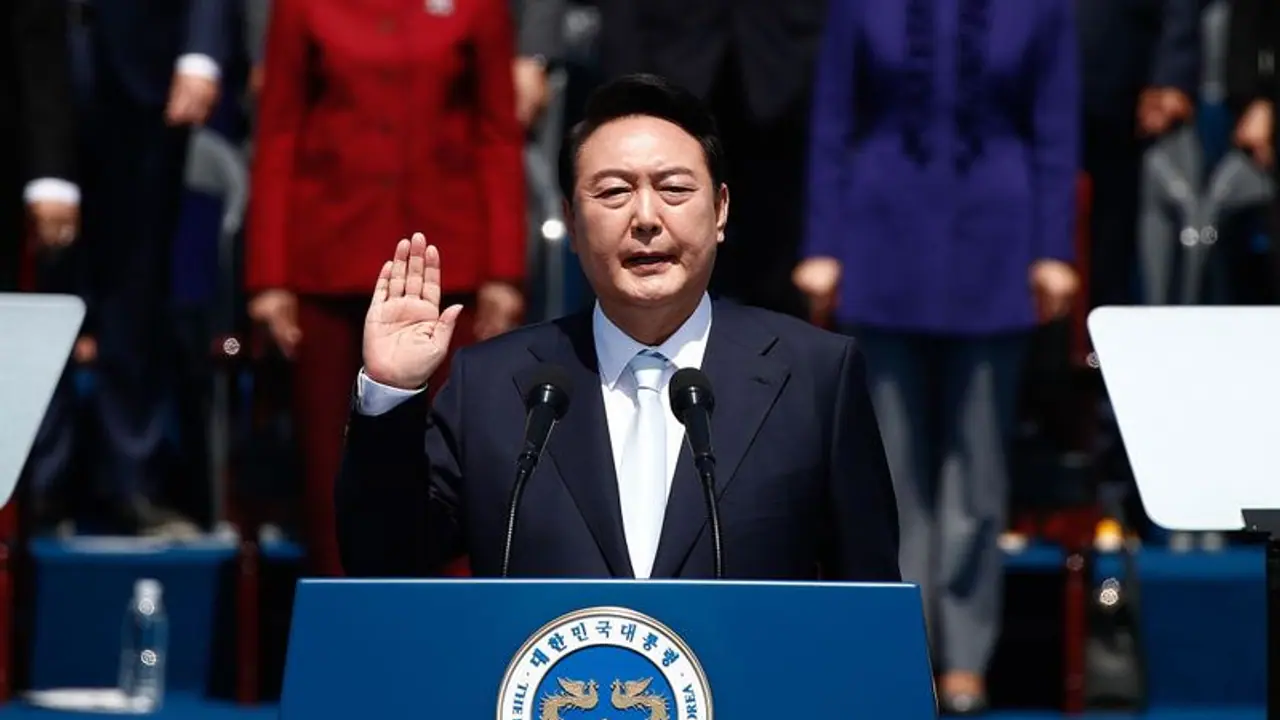Yoon was elected on a promise of eliminating corruption and levelling the economic playing field, amid growing public dissatisfaction with inequality and rising housing costs, as well as simmering gender and generational rivalry.
Conservative Yoon Suk Yeol assumed office as South Korea's president on Tuesday, confronting a more difficult mix of foreign policy and internal issues than previous South Korean leaders faced at the outset of their presidencies. In midnight, the former top prosecutor took leadership of South Korea's 555,000-member military and received a briefing on North Korea from his military chief at the new presidential office in downtown Seoul, previously the Defence Ministry building.

Yoon said after being sworn in in front of parliament in Seoul that North Korea's weapons programmes pose a threat, but that he is willing to give a "audacious" economic strategy if the North commits to denuclearisation.
Yoon won a close election as the standard-bearer of the major conservative People Power Party in March, less than a year after joining politics following a 26-year career as a prosecutor. Yoon, 61, will join office facing two significant challenges: a hostile North Korea developing new weapons and inflation threatening to derail an economic rebound from two years of Covid-19 doldrums.
Also Read | South Korea planning to build country's first floating airport in Busan
He has signalled a stronger stance toward North Korea, threatening a preemptive strike if there is any indication of an impending attack, but his address was regarded as emphasising his readiness to renew stalled denuclearisation negotiations with Pyongyang. "While North Korea's nuclear weapons programmes pose a threat not only to our security but also to the security of Northeast Asia," Yoon added, "the door to dialogue will stay open so that we may peacefully address this issue."
Yoon was elected on a promise of eliminating corruption and levelling the economic playing field, amid growing public dissatisfaction with inequality and rising housing costs, as well as simmering gender and generational rivalry.
Also Read | 'From ground, sea and air': South Korea fires missiles in response to North Korea ICBM
